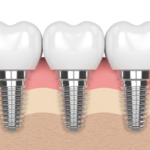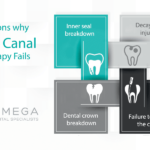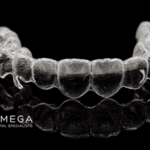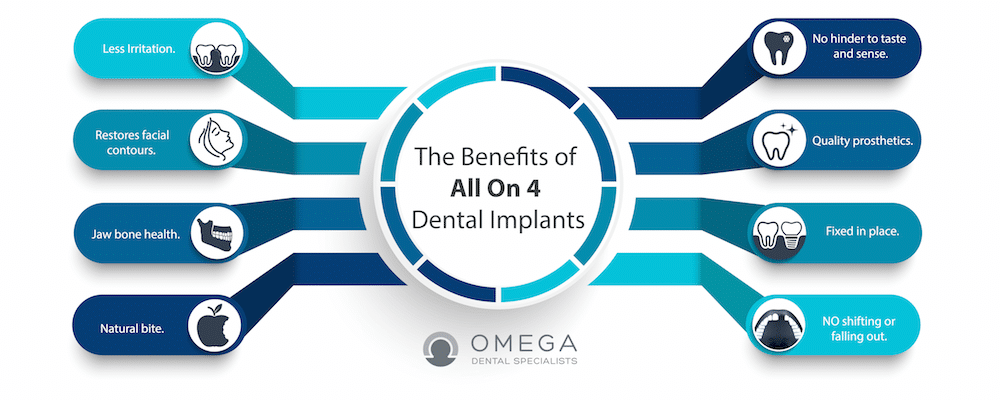When you want to replace missing teeth, affordable dental implants Houston might offer an option if you’re a good candidate. These implants provide a way to restore your smile and boost your confidence. Unlike dentures, dental implants stay in place, making them less noticeable to other people. In fact, these implants look so much like your natural teeth that it is very difficult to tell that they are artificial.
Whether you have lost a tooth or two from an injury or dental problems, dental implants can replace them. Dental implant procedures are generally considered safe, but they are not as effective for everyone. In order to get these implants, you’ll need to have certain factors taken into consideration to make sure that this procedure goes smoothly. Having dental implant specialists examine your mouth and go over your medical history helps determine if you are the ideal candidate for a dental implant.
Before deciding whether or not dental implants might be an option, it’s important for you to learn more about them. Find out more about what dental implants are and what kinds of benefits they offer, as well as what factors make you a good candidate for this kind of procedure.
How Dental Implants Work
Dental implants are made to hold artificial or replacement teeth in place. These implants are titanium posts that dental specialists place in your jaw where you have missing teeth. In traditional procedures, these posts are left in place while your jawbone heals and becomes fused to them. After this occurs, dental specialists in Houston attach a connecting piece to each implant and put the artificial tooth in place.
Depending on the type of procedure you’re having, this could take several weeks or months to complete. However, there are other options, such as same day dental implants, that take a much shorter amount of time. Dental specialists can help you decide which type of dental implant procedure is best for your situation.
Advantages of Dental Implants
Implants permanently replace missing teeth, preventing and improving social and health problems that result from missing teeth:
- difficulty chewing or biting
- malnourishment caused by an inability to chew
- misalignment of the jaw and resulting pain or TMJ
- embarrassment and self-consciousness
- movement of other teeth to fill open space
- changes in speech
What kinds of benefits do dental implants offer? These implants provide the following advantages:
- Improved smiles: The main advantage of dental implants is that they can make your smile more attractive. If you have been avoiding smiling due to missing teeth, having implants can give you the confidence to fully smile again.
- Confidence: Knowing that you no longer have missing teeth that are visible can provide you with a boost of confidence. This can improve your quality of life in many areas, including work and relationships.
- Comfort: Dental implants should feel just like your natural teeth when they’re completed, unlike dentures, which can be uncomfortable to wear.
- Fixed in place: With dental implants, you don’t have to deal with taking them out of your mouth from time to time as you would with dentures. Implants provide a more long-term option for replacing your teeth.
- Easy care: You don’t need to follow special steps for keeping your dental implants in good condition as you would for cleaning dentures. Just make sure to brish and floss regularly and have routine dental visits.
Furthermore, those with missing teeth sometimes feel as if they are limited socially or professionally due to their appearance. Implants can improve your appearance, boost your self-confidence, keep your jaw aligned properly, and restore your ability to bite and chew without a struggle.
The very first step in getting dental implants is scheduling a consultation appointment to learn more about the procedure, determine your eligibility, develop a treatment plan, and learn about payment options. Each patient is different and requires a unique treatment plan.
Best Dental Implants Candidates
About one out of ten people in the adult populous is missing all teeth. That equals about 30 million US adults, while about 20 percent of adults are lacking all maxillary-rooted teeth. Some 20-30 percent of grown people are partially edentulous, while the number grows in older population groups, with those over 45 years old missing rear-area teeth in the maxillary region. At least four out of ten patients who are adults have lost some teeth in that region.
Edentulism can cause many problems to patients, including limits to function, physical decline, psycho-social issues and become disabling to those who suffer from it. Edentulism also has been shown to indicate a decline in general health and can be analyzed in major ways such as physical symptoms, function, social standing and in how well-being is perceived. How many teeth a person has is viewed as a key determiner of dental function and overall health. Research studies with various methodologies show that a key indicator for chewing efficiency is the number of teeth functioning in a patient.
A review of the relationship in oral function and dentition indicated that people who have less than 20 teeth with just nine to 10 upper and lower teeth contacting suffer from impaired mastication efficiency, performance, and self-perceived chewing ability. Additionally, some evidence exists showing that reduced function in the elderly populations can be related to atrophy of muscles in the oral region, but it nonetheless has little impact. But researchers generally agree that those who wear dentures enjoy a mere 20 to 25 percent less viable bite strength than do individuals with all their natural teeth. It is clear, that when measured in demographic significance, edentulism represents a major burden in those whose lives are affected.
Who is a good candidate for dental implants? Since dental implants might not work for some people, it’s important to make sure that you’re considered a good candidate. Dental specialists can evaluate you to determine if these implants are suitable for you. In the meantime, keep the following factors in mind, since they help determine if you’re a good candidate:
- Enough of jawbone: Dental implants won’t stay firmly in place unless there is enough jawbone around them. To be a good candidate, you should have plenty of jawbone to support these implants.
- Gums that are healthy: Having healthy gums is an important part of being a suitable candidate for dental implants. If you have gum problems, you might run into problems during the healing process.
- Good oral hygiene: Dental implants are relatively easy to care for compared to dentures. To keep them in good condition, you’ll need to be willing to have follow-up visits with your dentist. You’ll also need to brush and floss your teeth and gums regularly around these implants to prevent problems from occurring.
What happens if your dental specialist determines that you do not have enough jawbone for dental implants? You might still be able to get implants, but you’ll need to undergo bone grafting first.
Those with chronic diseases that are not well-controlled, heavy smokers, and those with gum disease or receding bone need to be evaluated thoroughly by a provider to determine eligibility.
Many patients need treatment before they can receive their first dental implant surgery. This may involve bone grafting, tissue grafting, or orthodontic treatment to make space for the implant. All of these factors will be included in the overall treatment plan and timeline provided during the consultation.
What to Expect from Bone Grafting
If you find out that you need bone grafting in Houston, this is a straightforward process that helps increase the amount of bone you have for supporting implants. This process involves removing bone pieces or fragments from other parts of your body or getting them from another source. These pieces of bone are added to your jawbone and allowed time to fuse. The healing process after bone grafting can take several weeks or months to occur. After this happens, you’ll be ready to start the dental implant process.
What if I Have Poor Bone Density?
Bone quality is generally poorest in the edentulous rear area of the maxilla compared to other intraoral regions. Clinical studies from research published during the past three decades shows that poorer bone density can decrease success of implant loading by an as much as 16 percent while some research shows that it can be a problem in four out of 10 patients.
Failures are due to factors such as bone strength. Low done density can mean bone is fifty percent weaker than bone in the frontal mandible. Densities influence surface contact with implant bone, accounting for forces transmitted. Patterns of stress tracked in poor bone density show migration toward the implant apex. That means that bone loss is pronounced more greatly on the implant body, instead of crestally.
Your Omega Specialist Dental clinicians are expert in understanding these factors and can plan your affordable dental implant care in the most optimal way to allow you to return your smile to the way it was before tooth loss.
Risk Factors for Dental Implants
The truth about dental implants is that they are not always the best option for tooth replacement. Why aren’t some people considered good candidates for dental implants? Underlying medical conditions and other factors might cause dental specialists to determine that dental implants would not work or would not be safe for these individuals. Keep in mind that dental implants are generally a safe procedure as long as you meet the requirements for being a suitable candidate.
Some of the factors that might prevent you from being able to get dental implants include the following:
- Younger age: Children with jawbones that have not finished growing and developing might not be good candidate for dental implants.
- Smoking: Being a smoker can interfere with the healing process after dental implant posts are placed in your jawbone. To lower the risk of complications, such as infections, dental specialists might not recommend dental implants for smokers.
- Underlying medical conditions: Uncontrolled diabetes, immune system problems and some other medical conditions might increase the risk of complications during and after the dental implant procedure. Dental specialists will go over your medical history to help decide if you are a good candidate.
- High-dose radiation: If you have had any high-dose radiation for head or neck problems, you might not be considered a suitable candidate for dental implants.
- Pregnancy: Dental implants might not be a good option for women during pregnancy due to changes that can occur in the mouth at this time, such as gum problems.
Keep in mind that having one of these risk factors might not automatically mean you cannot get dental implants Houston. Having a consultation with a dental specialist is an important part of figuring out if dental implants are a safe and effective option for you.
Cost of Dental Implants
If dental specialists determine that you are a good candidate for dental implants, how much can you expect to pay for them? This depends on different factors, such as the type of implants you get. The cost of full mouth dental implants or just one dental implant can vary widely. For example, multiple tooth dental implants can range from a few thousand dollars to $90,000 or more. Single tooth dental implants can cost much less, such as just over $1,000 or up to $6,000.
Many patients suffering from tooth loss never explore dental implants because they believe they are too expensive or the recovery is too extensive and restrictive. To make a truly informed decision regarding dental implants, every patient owes themselves the gift of a consultation appointment to learn the real truth about implants and ensure they’re making a decision based on real numbers and accurate information that only an oral surgeon who has examined their mouth and reviewed their x-rays can provide.
The cost of dental implants Midtown Houston also includes prices for X-rays, abutments, crowns and materials. If you need an extraction to remove a badly damaged or decayed tooth, this will also add to the cost. If you need bone grafting done, you can also expect this to raise your overall cost for dental implants.
Where to Get Dental Implants in Houston Texas
Where can you go for cheap dental implants Houston TX? Omega Dental Specialists offers high-quality, affordable dental implants in Houston, so you can improve your smile and enjoy the other benefits that these they offer. Whether you get same day dental implants or traditional implants, our dental implant specialists can help you choose the best option to replace missing teeth.
Have you been wondering “am I a good candidate for dental implants?” We offer free dental implant consultations at our office. During this visit, our dental implant specialists will do an evaluation that takes several factors into account to determine the best option for tooth replacement. We will discuss these options with you at this visit. Keep in mind that there are different types of dental implants available, so it’s important to have some guidance in choosing the right one.
At Omega Dental Specialists, we strive to ensure that dental implants are affordable for our patients. We take many types of insurance, and we offer financing options to help you cover the cost of dental implants. During your visit, we will go over the cost and payment options with you.
If you’re ready to find out if dental implants are right for you, please contact Omega Dental Specialists today to schedule your free consultation.







